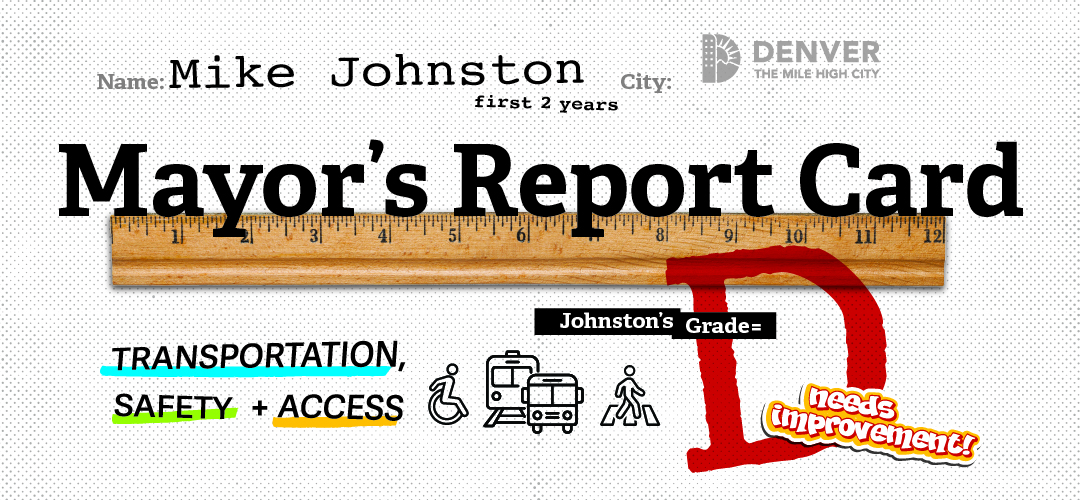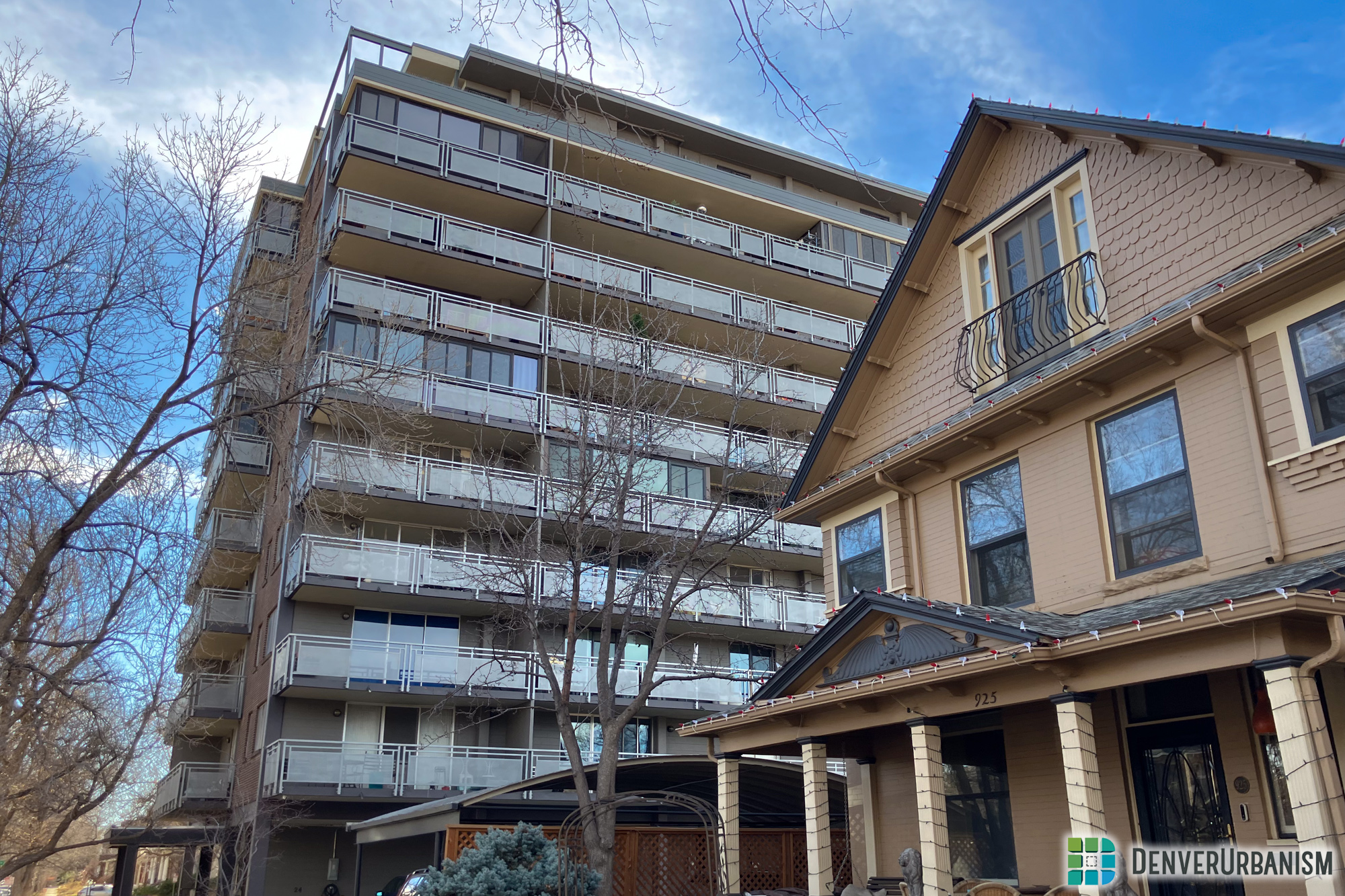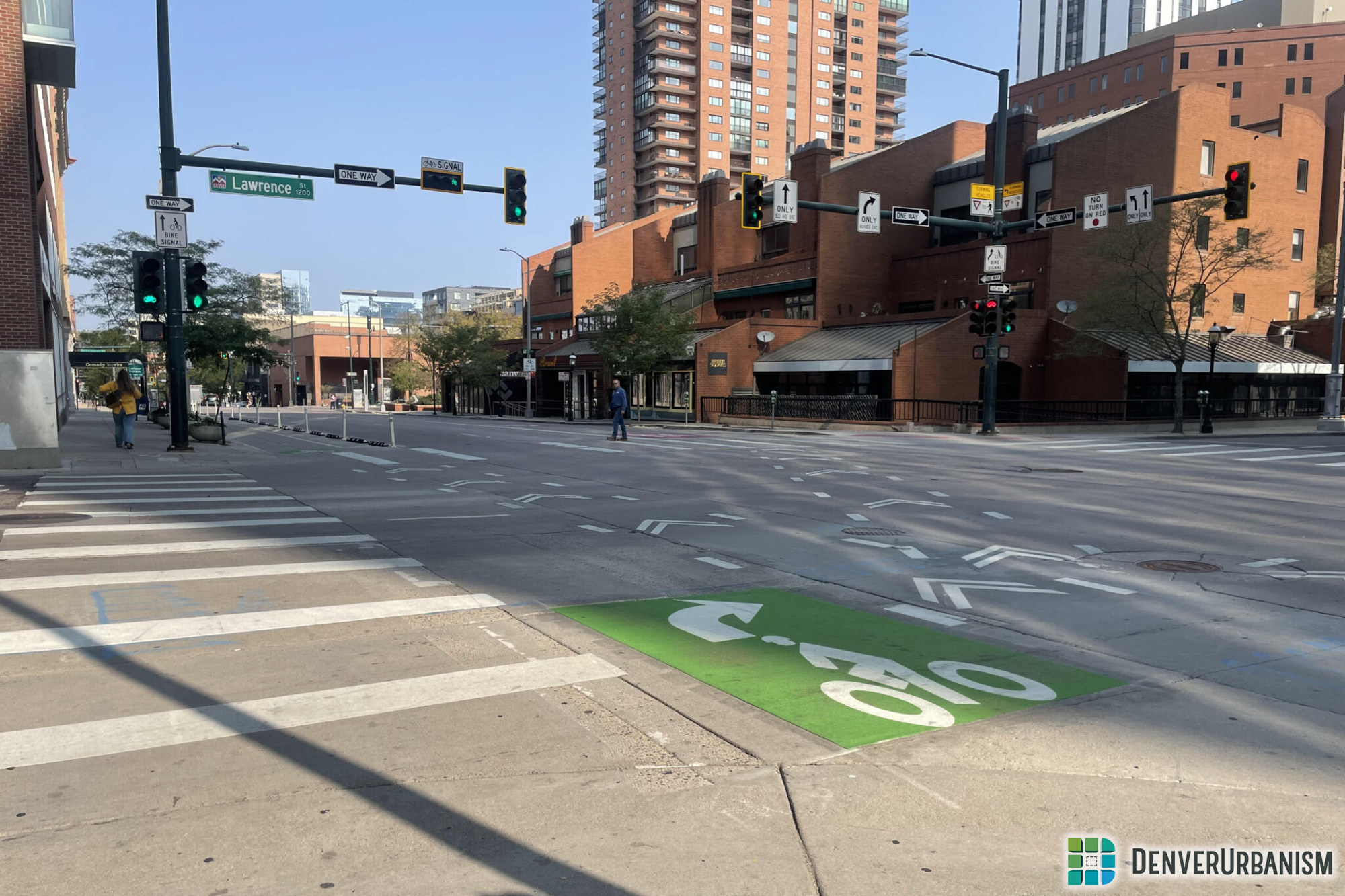In the fifth and sixth paragraphs of the recent Denver Post editorial regarding the mix of drivers and other users on city streets, the Post notes that the city has an upcoming request to voters for bond reauthorization and choices to make about spending. They say that the city’s needs include new recreation centers, libraries, and parks among other things. Of course, given the rest of the editorial, it seems as though they’re only interested in being able to drive to these amenities. And if you’re already driving, why do you need something close by? We might as well just centralize everything and have everyone drive to these larger, more efficient facilities. Neighborhood amenities should be close enough to safely walk or bike to, on infrastructure of equal quality to that dedicated to moving cars at breakneck speed (for pedestrians caught in their path).
The Post says that they’re “glad to hear Hancock tell Denver Post TV that mobility would be a priority” and then in the very next sentence, the Post turns around and says that “We might learn to rue the day, however, if Hancock jumps on this … bandwagon being driven by the anti-car movement.” So which is it, do they want mobility or cars? Do they want mobility or unsafe streets? Do they want mobility or less options for getting around town? To the Post, it appears the only valid form of mobility is a personal car. Anything else is an inconvenience, an imposition, or at best a childish wish by people less informed than they.
The Post also uses the phrase “anti-car movement” which is typical auto-centric hogwash. To them, any person who asks for a portion of the space on streets for biking is “anti-car.” To them, any person who points out that buses work better in dedicated lanes is “anti-car.” To them, any person who says that slower, safer streets create greater economic opportunity and property value than prioritizing the movement of speeding cars is “anti-car.” None of these positions is anti-car. The vast majority of people who hold these positions do drive cars, but what they don’t do is build their lives around the fragile reality that only a car can get them where they need to go.
If Denver truly wishes to prosper, it needs to spend less money on moving cars and more money on moving people.
~~~
This is Part 4 of a six-part response to the Denver Post editorial of February 23, 2017. Photo courtesy of WalkDenver.











Mobility should mean freedom, freedom of choice (i.e. the choice to not have a car and still be able to get around, the choice of numerous different modes), freedom from debt.
The resistance is going to have to come from young urbanites and Millennialls, et al. in cities like Denver because the reality is that for the most part gen. x and especially boomers (with a few exceptions) are deeply tied to the suburban, car-centric, cheap and plentiful energy, world that has shaped their world-view and lives.
All the Millennials I know out here in the suburbs own cars and drive them to work, as well as virtually everywhere that they go. Of course it costs a lot less money to live in our suburbs these days than it does to live in the city. In-fact you can buy a brand-new built-green house in Brighton within bicycling distance of a big new King Soopers for under $330K, which leaves more than enough left over to own a car and drive it virtually everywhere you go too as compared to paying 50% more to live in inner-city Denver and go without a car.
I read a very interesting sentence in a recent exhaustive study of the alleged traffic reduction benefit of increasing urban density. That sentence suggested that people choose to live where they are comfortable living, with a great many people choosing to enjoy an auto-centric lifestyle. Others choose to live in high-density mixed-use and walk or bike.
The study was entitled Urban Form and Driving, Evidence from US cities, by Gilles Duranton of the University of Pennsylvania and Mathew A. Turner of Brown University.
The study was new on October, 27th, 2016
The last paragraph of their conclusion reads like this [Quote] Our estimates of the relationship of driving to urban form allow us to assess the cost effectiveness of densification as a policy response to excessive driving. These estimates suggest that urban form is not cost effective compared to explicit pricing programs. In particular, even concentrating the population residing in 83% of the area the continental us into an area of about 1500 square kilometers would result in only about a 5% decrease in aggregate driving, and this
policy appears to describe the upper envelope of what densification policies can accomplish.
On the other hand, existing estimates of the gasoline price elasticity of driving suggest that a similar decrease in driving would be accomplished with a gas tax that is no larger than gasoline price fluctuations observed over the past five to ten years. Congestion pricing programs appear to have even larger effects. In sum, while dense urban development may well be desirable because it provides a residential environment where people want to live and that make them work more productively (e.g., Rosenthal and Strange, 2008), it is probably more costly to manipulate driving behavior through densification policies than through congestion pricing or gasoline taxes. [End quote]
http://www.brown.edu/Departments/Economics/Faculty/Matthew_Turner/papers/unpublished/Duranton_Turner_unp2016.pdf
Essentially if density increases then you need many more delivery trucks as well as refuse trucks, and unless your walk-to service and supply has the ability to store a fairly large amount of product on-premises you need many more deliveries than do big box stores in the suburbs. The average King Soopers goes through a dozen 18-wheel truckloads every day and their average store has enough room in the back to store several days worth of sale.
You know in Detroit growing-up when streets got too crowded we widened them by tearing down buildings too close to the street. That’s what happened when Telegraph Rd was widened from 4 to 8 lanes divided in 1975 in my old neighborhood. It would be less-expensive to build elevated bikeways than it would be to tear down lots of buildings.
Fostering lots more congestion is something we don’t want to do here, as it will force those of us who choose to drive to choose whether to come down to the city or not, as it may just not be worth all the lost time. Perhaps it would be better for those of you who choose to live like you do to cause lots of extra congestion but in the end if doing-so causes the majority of us who choose to drive to choose to stay away from the city I doubt that will work out nearly as well as you hope either.